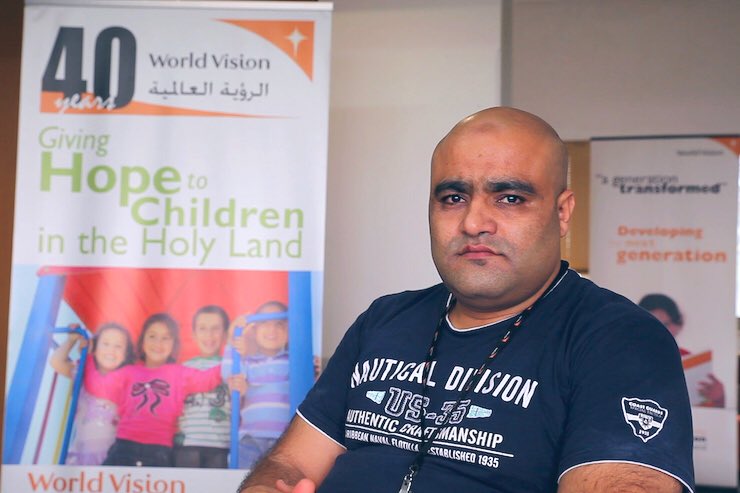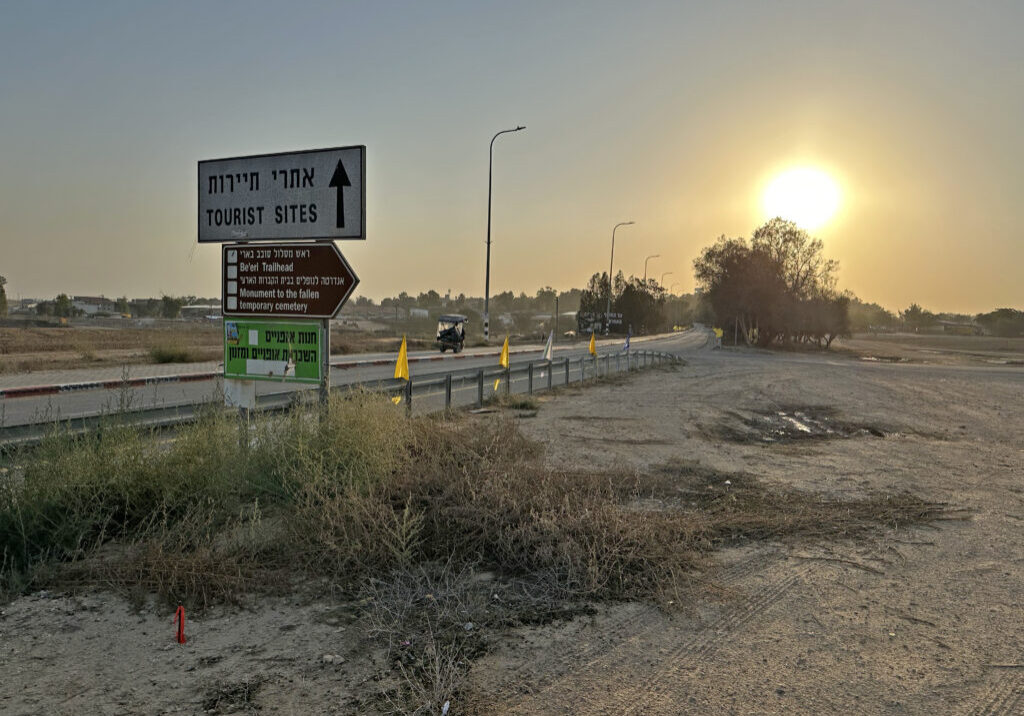Australia/Israel Review
The Verdict in the el-Halabi/World Vision case
Jun 28, 2022 | NGO Monitor

On June 15, 2022, Mohammad el-Halabi was convicted in the Beersheva District Court of diverting funds and materials to Hamas for terror purposes. At the time of his arrest in 2016, el-Halabi was the head of World Vision – an international, church-based aid organisation – in Gaza.
Beyond the accusations levelled against el-Halabi, the verdict highlights World Vision’s failure to properly supervise its operations in Hamas-controlled areas and protect its humanitarian aid from abuse. The judges criticised the NGO for its belief that internal processes could adequately identify embezzlement of the type that was proven to be perpetrated by el-Halabi – confirming NGO Monitor’s analysis from 2015 that World Vision was susceptible to aid diversion due to its willingness to negotiate and coordinate with armed groups.
Below are key points and quotes from a summary of the verdict that was released to the public. The summary consists of 23 pages; the classified verdict is 254 pages.
El-Halabi was convicted of:
- Contact with a foreign agent
- Membership in a terror organisation: “The defendant took an active and significant part in the activities of Hamas and assisted Hamas over the years in a variety of ways, including transferring money and equipment that he knew would be used to fund terrorism and assist terrorists, as detailed in the indictment. The defendant even participated in military actions such as marking exit points for tunnel openings on the Israeli side of the Erez Crossing…”
- Illegal use of property for terror purposes
- Providing information to the enemy
- Illegal military training
- Possession of weapons and ammunition.
El-Halabi was not convicted of aiding an enemy during wartime. (Israel’s Attorney-General recommends not applying this law to Palestinians from the West Bank and Gaza.)
Proof from a World Vision whistleblower
In 2015, a Gaza-based accountant for World Vision informed his employers that he suspected el-Halabi of diverting funds to assist Hamas. He was fired and subsequently interrogated by Hamas. Damningly, el-Halabi had a copy of the interrogation on his personal computer.
- “…the complaint of Mohammed Mehdi, a WV (World Vision) accountant during the period relevant for the indictment, [who] alleged to the organisation, inter alia, that the defendant used the organisation’s money to assist Hamas. Mohammed Mehdi described the operative mechanisms that the defendant used, which were consistent with the operative mechanisms that were detailed by the defendant in his indictment.”
- “Furthermore, the circumstances of Mohammed Mehdi’s firing from the WV (World Vision) organisation, his interrogation by Hamas and the discovery of his interrogation on the defendant’s personal computer that was seized by the Shabak [Israel’s internal security agency] also constitute a significant evidential addition to the defendant’s confession.”
Judges’ analysis of testimony from World Vision employees
- “They are apparently trapped in a preconceived notion that does not accord with the circumstances in the region, that their professionalism will absolutely and always prevent any fraud or abuse of faith… The Court does not give practical or operational advice in this field. However, given the circumstances, it appears that effective oversight should be based on the opposite assumption, that fraud and abuse can occur, particularly in a region controlled by a cruel regime, in the form of a terrorist organisation that nearly has a state, whose resources – including economic resources – are inter alia, taken advantage of through trickery, threats, and force, for terrorist activity, including from organisations like World Vision.”
- “We cannot accept the defence’s central argument that due to the allegedly tight oversight at World Vision, there could not be fraud, deception, and transfer of funds to Hamas, as is ascribed to the defendant.”
- “All the more so when a significant portion of the organisation’s oversight mechanisms rely on internal oversight of local Gaza committees, and on employees who are residents of Gaza and, one way or another, are under Hamas’ authority. From the testimony of the defence witnesses, it emerges that the main oversight mechanism is located outside of Gaza and largely operates by ‘remote control,’ by reviewing documents received from elements in Gaza. In practice, all of the defendant’s activities were based on, inter alia, taking advantage of the distance [from oversight bodies] and the remote-control oversight and the possibility to manipulate figures with the assistance of internal elements in Gaza, and presenting a false narrative to the organisation’s oversight mechanisms that trust him and his judgment, and greatly respect him.”
- “With respect to the claims of defence witnesses, according to which it would have been impossible for the defendant to circumvent the organisation’s monitoring and oversight mechanisms, the organisation has significant interest not to recognise and to deny this possibility. While we certainly believe that the organisation is staunchly opposed to the possibility that its funds will be transferred to terrorist organisations, as its mission is humanitarian aid – recognition of the potential for diversion of funds to a terrorist organisation would place a heavy cloud over the organisation’s activities, and would pose a risk to its operations. There is substantial interest [to reject this possibility] that, naturally, appears to be part of the rationale behind the testimony of defence witnesses… Review of the evidence paints a different picture than that presented by the defence witnesses. The defendant ran the organisation in Gaza and it appears he had broad and substantial authority in the organisation and was involved in all matters.”
Judges’ assessment of el-Halabi’s credibility
- “In our estimation, the defendant is intelligent, dispassionate, and measured. His testimony made a very poor impression. His account changed over the course of his testimony in accordance with the questions he was asked, and in order to justify his lies, the defendant repeatedly tripped himself up with his answers. The defendant made contradictory and illogical statements in an attempt to explain away his detailed confession and the information he provided that indicated involvement in Hamas, and the explanations he provided regarding his method for deceiving World Vision and providing funds to Hamas.”
- “During the defendant’s testimony, we commented on several occasions that he was avoiding answering the Prosecutor’s questions, and was repeating his general account [of the events] irrespective of the questions that were asked. Our overall assessment is that his court testimony is unreliable and that all of his efforts were directed towards convincing the Court that his confession was false.”
The allegations in the indictment
1. Hamas recruitment (1st and 12th counts of the indictment)
- According to the indictment, in 2004 or 2005, Hamas directed el-Halabi to join World Vision in order to exploit it to advance the needs and interests of the terrorist organisation. This took place after el-Halabi had already joined a Hamas military unit.
- Around 2014, el-Halabi allegedly attempted to recruit a senior Save the Children employee in Gaza, Dr. Walid Musa, into Hamas. This was intended to provide Hamas with intelligence, such as “the identities of individuals appointed by the United States to sensitive positions in international organisations in the Gaza Strip,” as well as “the identities of the participants in security courses of these international organisations.”
2. Terror tunnels and military installations (2nd and 3rd counts)
- The indictment describes how el-Halabi diverted World Vision aid materials to Hamas for the purpose of constructing and improving its terror tunnels. For this purpose, he is alleged to have provided the group with “hundreds or thousands” of tons of iron, plastic tubing for improving communications and electrical infrastructure in the tunnels, and digging implements.
- He is also charged with abusing World Vision funds and materials for the construction and improvement of other Hamas military installations. (3rd count).
3. Diverting World Vision funds (5th count)
- The charge sheet claims that el-Halabi diverted millions of dollars of aid intended for “humanitarian needs, agriculture, education, and psychological support,” to Hamas.
4. Intelligence gathering at the Erez Crossing (8th and 13th counts)
- The prosecution accused el-Halabi of helping a Hamas military official identify and mark key points near the Erez Crossing. He allegedly did so knowing that these would be used for Hamas “military activity,” such as determining where to locate exits for Hamas terror tunnels in Israeli territory.
- Additionally, in 2010, el-Halabi was approached by a Hamas military official, who requested that he provide him with intelligence about the security arrangements at the Erez Crossing.
5. Procurement of arms and diving equipment for Hamas (10th and 11th counts)
- El-Halabi allegedly provided $20,000-$30,000 to Hamas members for purchasing weapons. This took place during 2010-2013.
- El-Halabi is also accused of providing $3,000-$5,000 on two occasions to two Hamas members (one of whom was Halabi’s brother) for the procurement of oxygen tanks and wetsuits for Hamas’ naval commando unit, which expressed satisfaction with the quality of the diving tanks.
6. Diverting humanitarian materials to Hamas members (6th count)
- El-Halabi is accused of ensuring that “the majority” of World Vision-funded packages of “food and hygiene products, blankets, etc.,” were “regularly provided” to members of Hamas military units, including during periods of armed conflict with Israel.
7. Hiring Hamas members (7th count)
- During el-Halabi’s tenure at World Vision, he hired Hamas members to work for the aid agency, based on a list provided to him by a “senior” Hamas military official.
- He is also charged with allowing Hamas members to collect a World Vision salary, despite not actually working for the organisation.
- El-Halabi allowed Hamas military members to collect “unemployment” stipends from World Vision, at the same time that they were actively involved in Hamas military activity, including surveilling the Israel-Gaza border and guard duty.
8. Manipulating the tender process (4th count)
- El-Halabi is charged with awarding a large majority of tenders for World Vision projects to two local companies, Arkuma and Elatar. The prosecution claims that these companies were favourites of Halabi because of their willingness to overcharge World Vision and provide the leftover funds to el-Halabi, which he then delivered to Hamas members.
9. Participation in military training (9th count)
- El-Halabi is accused of participating in Hamas training activities, including weapons use, in around 2014.
10. Contributions to Hamas-linked institutions (14th count).
- In 2015, el-Halabi provided 300 shekels a month to charities run by Hamas members Muhammad Tatari and Ashraf Bazari.
- During 2015-2016, he made contributions of hundreds of shekels to a Hamas-run mosque.
© NGO Monitor (www.NGO-monitor.org), reprinted by permission, all rights reserved.
Tags: Hamas, Israel, NGOs, World Vision






